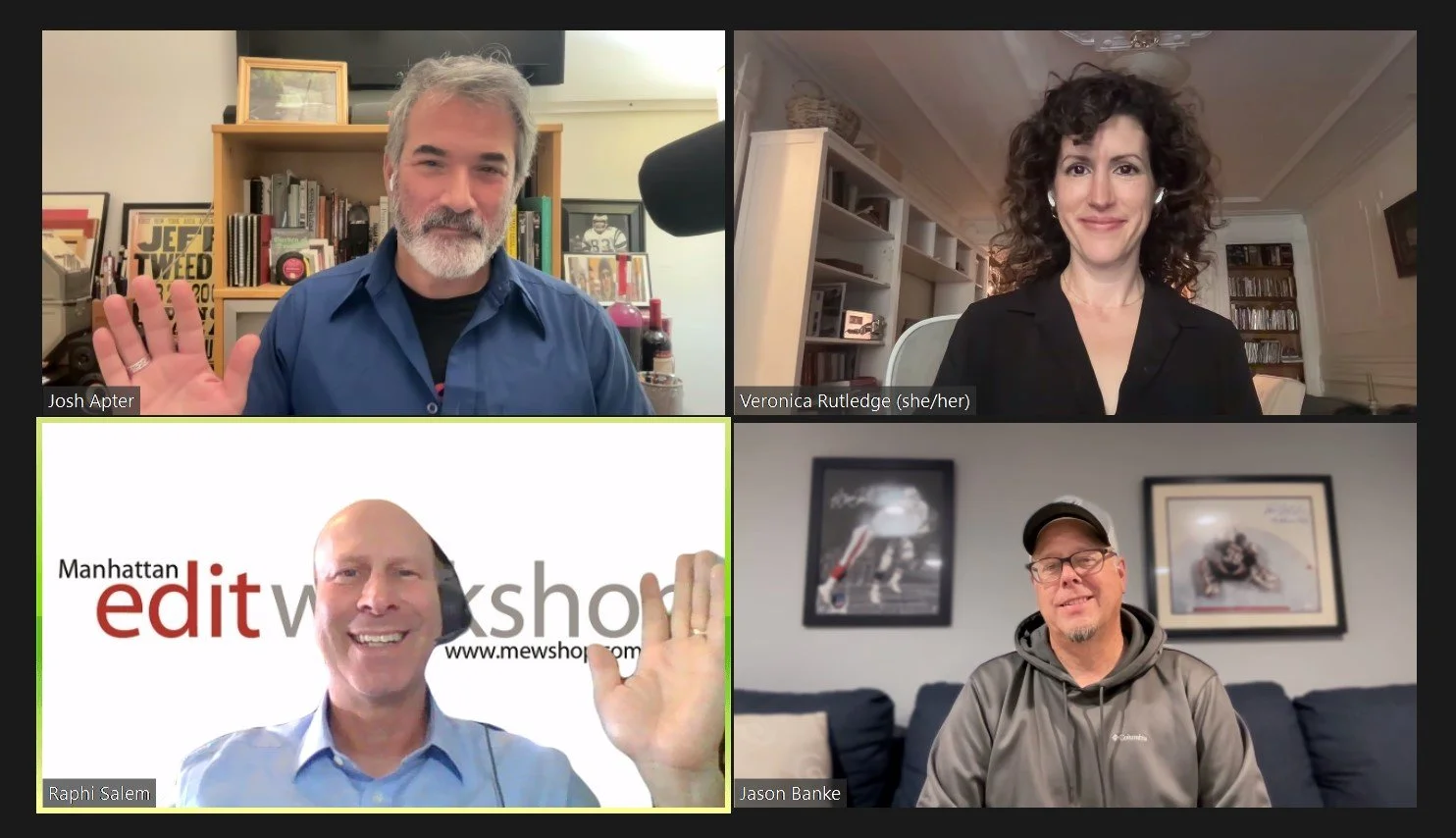This is an article based on an episode of Manhattan Edit Workshop’s “Talking MEWShop.” You can watch the conversation by following or subscribing to the show HERE.
Veronica Rutledge’s journey into the world of film and television editing is a testament to grit, hustle, and the power of connection. Appearing as a guest on the Manhattan Edit Workshop’s (MEWShop) Talking Heads series, Veronica joined hosts Josh Apter, Jason Banke, and Raphi Salem to reflect on her start in post-production—and how a six-week course changed the course of her career.
Rutledge’s relationship with MEWShop began not long after graduating from college, when she discovered the workshop through a blend of Google searches and possibly a well-placed MovieMaker magazine ad. What began as a crash course to supplement her limited experience in Avid became a life-changing experience. “It filled in a lot of knowledge gaps,” she said. But more importantly, it connected her to people who would shape her future, including Artists in Residence like Brian Kates, ACE, and Ali Muney.
At the time, Rutledge was grinding through late-night transcription work at Left/Right, a company known for reality and documentary TV. By day, she attended MEWShop’s intensive workshop; by night, she was digitizing tapes and learning the ins and outs of post-production workflows. “I didn’t sleep much,” she laughed, recalling her vampire-like schedule and late-night PATH train commutes from a Jersey City basement apartment.
Her tenacity paid off. Connections she made through the program led to her first feature post-assist gig on Adventureland and to working on Philip Seymour Hoffman’s Jack Goes Boating. But like many careers in entertainment, Rutledge’s path wasn’t linear. She cycled through various roles in reality, documentary, and scripted television, building confidence and skill at each turn.
Her breakout into narrative editing came while assisting on sitcoms like Are We There Yet? and The Jim Gaffigan Show, where supportive producers allowed her to edit promotional materials. Eventually, Jeannie Gaffigan advocated for her to edit full episodes—an early and crucial leap into scripted editorial work.
Rutledge went on to co-edit shows like Younger and The Affair, later working on Emily in Paris, where she enjoyed what she calls a “cushy” schedule—an entire week for polishing her editor’s cut, compared to the two-day turnaround she faced on previous shows. Still, the hard work never really stops. “It has to be polished and watchable,” she said, describing how even temp VFX and sound design need to meet broadcast standards.
As for whether editors can afford to be choosy, Rutledge and Apter agree: early on, you take everything. But with time, experience, and reputation, you earn the right to be selective about projects, collaborators, and environments. “You don’t need to say yes to things where you're going to be taken advantage of,” Rutledge advised. “There are a lot of kind, talented people out there. I wouldn’t waste time on anything but that.”
Her journey is proof that talent, persistence, and community can lead from an unpaid internship and night shifts to editing top-tier streaming content—and that MEWShop, with its hands-on training and strong alumni network, continues to be a launchpad for the next generation of editors.

